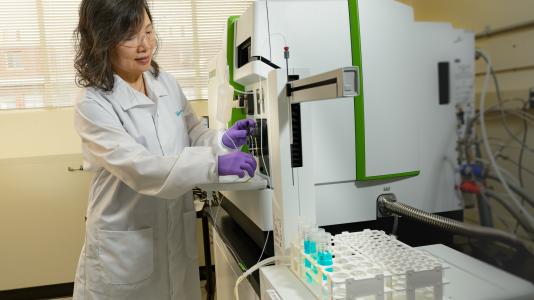
A team of Argonne scientists from the CFCT Division’s Analytical Chemistry Laboratory (ACL) and the SSS Division have just published a paper in Spectrochimica Acta B that describes a unique, high-precision analytical method for inorganic analysis via inductively coupled plasma quadrupole mass spectrometry (ICP-QMS).
Scientific Achievement
A technique was demonstrated that can improve the relative standard deviation in the measurement of inorganic isotopes by ICP-QMS by an order of magnitude or more, to better than 0.1%.
Significance and Impact
The precision and accuracy of this method is competitive with results from much more expensive and elaborate magnetic sector instruments, and represents a substantial improvement in the state of the art for the type of ICP-QMS measurements.
Research Details
- The method developed uses a non-linearity model based on the conventional dead time function and makes subsequent weighted mass-bias corrections to normalize isotope ratio data to pertinent isotopic reference materials.
- The method improves the short-term and long-term precision as well as the accuracy of ICP-QMS measurements.
DOI: https://doi.org/10.1016/j.sab.2019.01.003